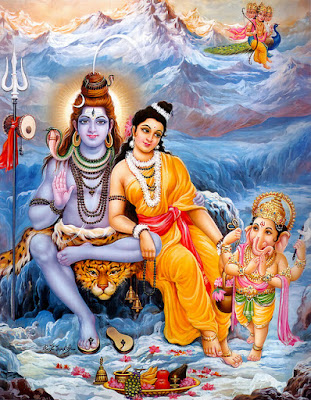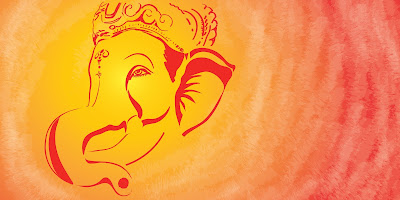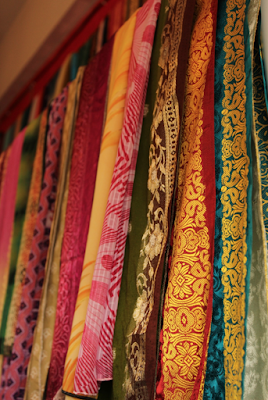Reading Notes: Ganesha's Secret, Part A
Notes
- Shiva - a mountain mendicant
- Parvati - a mountain princess
- Ganesha - son; has head of an elephant
- Kartikeya - son; holds a spear
- Having 4 arms, or a river flowing out of a god's head is a normal concept for Hindus because they have been raised knowing this is just the way it is and no one ever has the need to rationalize the reasoning.
- The divine can take different forms: as animals, plants, human beings, etc.
- God is not singular in Hinduism
- Narat visited Shiva and Parvati and offered a mango to the better son. To determine who was better, Narat suggested they race around the world 3 times and whoever arrives first, wins. Kartikeya hopped on his peacock and took off. Ganesha stayed with his parents and did not move. As Kartikeya was returning from his third time around the world, Ganesha quickly got up and ran around his parents three times and stated that he won. Ganesha went around his world (his parents) as Kartikeya went around the world.
- The world is viewed through many lenses; one divine, multiple divines; one birth, many rebirths
- Mythology (example) - makes sense to Hindus and seems strange to outsiders
- Some things cannot be explained by logic
- Shiva - A God, not God.
- God is not singular, or masculine only
- God for more significant gods, god for gods of lesser significance
- Divinity is formless, need form for humans to understand
- through forms, all cultures form their own realities
- Vyas - compiler of Vedas
- Saraswati - knowledge; mother of the Vedas
- No man can create anything without a woman
- Bramha - 4 heads represent the 4 expressions of the Veda; represent the 4 goals in life
- Dharma - righteous conduct
- Artha - economic activity
- Kama - pleasurable pursuits
- Moksha - spiritual practices
- life is incomplete without these goals
- Heaven - a perfect world; earth is transformed into a paradise
- Khandoba - local manifestation of God; linked to Shiva; both God and god
- loves turmeric - protector, provider
- has many wives; all belonging to different communities
- Vishnu - a king who reclines on the coils of a serpent that floats on the ocean of milk
- 2 wives - Shri and Bhu - Goddesses of wealth and earth
- local manifestation - Tirupati Balaji - Vishu left heavens to search for Shri but ended up falling in love with a princess named Padmavati
- ended up marrying her
- was in debt and resided atop a mountain - could not return with both Shri and Padmavati
- Chamunda and Chotila (Gujarati) - local forms of the pan-Hindu Goddess Shakti (Parvati)
- no male consorts; can remain warriors without having to be distracted by maternity or marriage
- Kama - Hindu cupid
- Hindu and Greek mythology - somewhat similar
Ganesha and his family atop a mountain. Source: Flickr
Bibliography: Pattanaik, Devdutt. Ganesha's Secret. Source.



Comments
Post a Comment